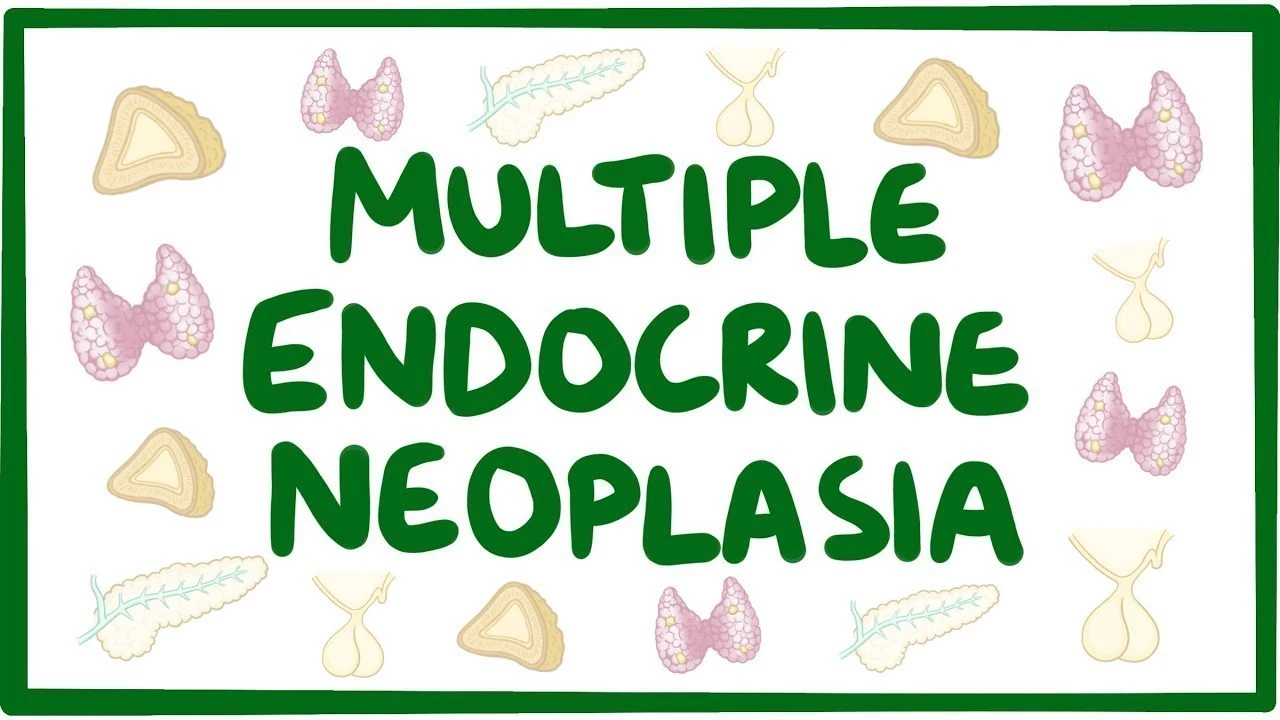Is multiple endocrine neoplasia fatal?
Houston Endocrine Center2023-01-07T14:58:50+00:00Multiple endocrine neoplasias (MEN) is a disorder that can cause tumors to develop in several different endocrine glands. These tumors can cause problems producing and regulating hormones, leading to serious health complications. Some people with MEN don’t experience any symptoms, while others might have issues like a high blood pressure reading or trouble regulating body temperature (hyperthermia).

Types of MEN Syndromes
There are several types of MEN Syndromes, but the most common are:
- MEN1 and MEN2
- MEN3
- Men 4 is very rare.
Diagnosis of MEN Syndromes
Diagnosis of MEN Syndromes is based on clinical features.
These include:
- Multiple endocrine neoplasia symptoms: Symptoms can be any combination of the following: hyperparathyroidism (high blood calcium levels), pheochromocytoma (high blood pressure), medullary thyroid cancer, or mucosal neuromas (small bumps under the skin).
- Family history of multiple endocrine neoplasia syndromes: A family history of MEN syndromes may indicate a person has one of these conditions themselves. A family history should be considered when considering diagnostic tests for endocrine neoplasia or genetic testing for any hereditary disease.
Diagnosis of Multiple Endocrine Neoplasia Syndromes
Diagnosis of multiple endocrine neoplasia syndromes is based on clinical features. These include Hyperparathyroidism (high blood calcium levels), Pheochromocytoma (high blood pressure), Medullary thyroid cancer, and Mucosal neuromas (small bumps under the skin).
Treatment of MEN Syndromes
The surgical removal of tumors and cells is the most common treatment for all types of MEN Syndromes. Surgery may be followed by radiation therapy, immunotherapy, chemotherapy, or drug therapy to treat cancerous tumors. Treatment depends on where the tumor occurs, how big it is, and whether it has spread outside the thyroid gland or another organ in which it developed. In addition to surgery and other therapies, some people with MEN 1 may need regular blood tests to monitor their progress against different cancers developing in other parts of their bodies.
Men with multiple endocrine neoplasia type 2 (MEN 2) might require additional treatments such as radiation therapy if they have tumors in their parathyroid glands or pancreas or if they develop parathyroid disease-related back pain due to overactive parathyroid (parathyroid hyperplasia). People with this condition also risk developing pancreatic cancer, so they’re advised not to eat a high-fat diet.
Men with MEN 1 and MEN 2 also risk developing pituitary tumors. If you are suffering from a pituitary tumor, your doctor may prescribe drugs to control hormone levels in the body or radiation therapy to shrink the tumor.
Doctors sometimes recommend removing the parathyroid glands if they become overactive or large. In other situations, they can be left intact to secrete calcium into your bloodstream.
Multiple endocrine neoplasia risk factors
- Heredity: If your family has a history of this condition, you’re at a higher risk of developing it yourself.
- Age: As you get older, your risk increases.
- Gender and race/ethnicity: Men have more MEC type 1 than women, while MEC type 2 is more common in African Americans than Caucasians or Hispanics.
- Environmental factors: like smoking and alcohol consumption, can also increase your chances of developing one or more types of multiple endocrine neoplasias (MEN).
Left untreated, multiple endocrine neoplasias can lead to serious complications.
While there is no cure for MEN syndromes, they can be successfully treated. The very common cause of death is cancer. Two types of cancer are most likely to develop: thyroid cancer and adrenal or parathyroid cancers.
Men with MEN 2A and 2B often have several tumors that need to be removed surgically and their entire parathyroid glands (which regulate calcium levels in the blood).
If you have one of these diseases, your treatment team will probably recommend regular scans and tests so that any new tumors can be found early on before they become dangerous.
Removing all the affected tissues may lead to hypoparathyroidism (low levels of calcium in your blood) and hypothyroidism (a condition where your thyroid gland doesn’t make enough hormones). This means you’ll need extra vitamin D and calcium supplements to help keep up with those deficiencies until your body heals from surgery properly.
Conclusion
Multiple endocrine neoplasias is a genetic disorder that affects the endocrine glands. It is diagnosed by examining the signs and symptoms of the disease and looking for other conditions that may be related to it. Treatment options vary depending on specific needs, but there are some general guidelines to follow to prevent complications from developing over time.
